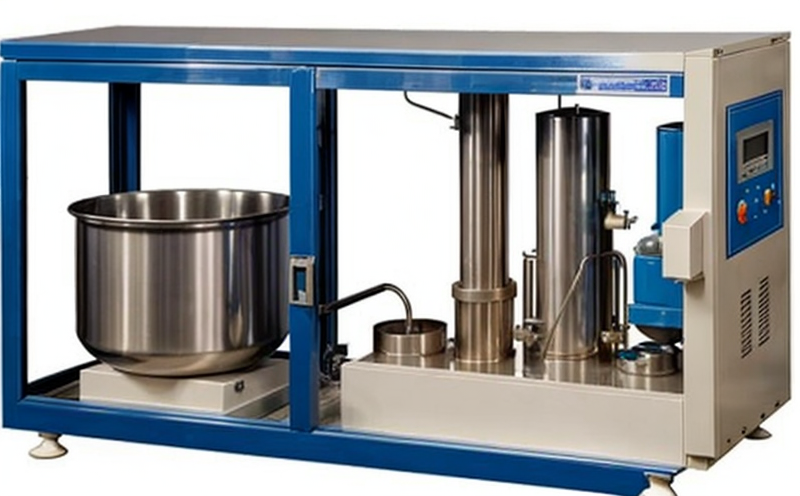EN 18122 Fumonisin Testing in Corn-Based Products
The European Standard EN 18122 provides a harmonized method for the determination of fumonisins in corn-based products. This standard is crucial for ensuring food safety and quality, particularly in sectors where corn plays a significant role such as animal feed and human consumption.
Fumonisins are mycotoxins produced by fungi belonging to the genus Fusarium. These toxins can cause severe health issues including liver damage, kidney dysfunction, and increased mortality rates in livestock. Corn is one of the most widely consumed grains globally, making it essential that its quality is rigorously controlled.
The testing procedure outlined in EN 18122 involves several steps: sample preparation, extraction, clean-up, and analysis using high-performance liquid chromatography (HPLC). The standard specifies detailed procedures to ensure accurate results. Sample preparation includes homogenization of the corn product followed by extraction into an appropriate solvent.
After extraction, the samples undergo cleanup processes like solid-phase extraction or liquid-liquid partitioning before being analyzed via HPLC equipped with a fluorescence detector. The method allows for simultaneous detection and quantification of multiple fumonisin species (B1, B2, B3).
The accuracy and precision of this testing procedure are paramount given the potential risks associated with fumonisins exposure. Compliance with EN 18122 ensures that corn-based products meet stringent safety standards set by regulatory bodies worldwide.
Given the importance of ensuring compliance with international standards like EN 18122, laboratories must invest in state-of-the-art equipment and trained personnel capable of performing these tests accurately. Regular calibration of instruments is also critical to maintaining consistent results over time.
- Competitive Advantage: By adhering to the latest international standards such as EN 18122, companies can demonstrate their commitment to producing safe and high-quality products. This not only enhances customer trust but also opens up new market opportunities domestically and internationally.
- Promotes Trust: Compliance with recognized standards increases consumer confidence in the brand’s reliability and integrity regarding food safety practices.
Why It Matters
The significance of EN 18122 lies in its role as a critical tool for safeguarding public health and animal welfare. Fumonisins pose significant risks, especially to young animals and poultry due to their nephrotoxicity (kidney damage) and hepatotoxicity (liver damage). Ensuring compliance with this standard helps mitigate these dangers by providing reliable data on fumonisin levels in corn-based products.
For producers, ensuring adherence to EN 18122 ensures they meet regulatory requirements. This aligns them with global standards and fosters trust among consumers who are increasingly concerned about the safety of their food sources. Additionally, it supports sustainable agricultural practices by promoting the use of safe inputs during cultivation.
In terms of economic impact, compliance can help prevent costly recalls and lawsuits while enhancing brand reputation through transparent quality control measures. It also contributes positively to environmental sustainability efforts by encouraging responsible farming practices that reduce contamination risks early in the supply chain.
International Acceptance and Recognition
The European Standard EN 18122 is widely recognized for its robustness and reliability in determining fumonisins in corn-based products. Its acceptance extends beyond the EU, being adopted by numerous countries around the world as a benchmark for quality assurance.
Regulatory bodies such as the Food and Agriculture Organization (FAO) of the United Nations recommend this standard due to its comprehensive approach towards detecting various fumonisin species simultaneously. This supports global efforts aimed at protecting public health and ensuring safe food supplies across borders.
The widespread adoption of EN 18122 reflects a commitment to international cooperation in enhancing food safety standards. By aligning with these globally accepted protocols, laboratories contribute significantly towards maintaining high levels of food quality and safety worldwide.
Competitive Advantage and Market Impact
- Enhances Trust: Compliance with EN 18122 builds confidence among consumers, distributors, and regulators. This trust translates into greater market share as customers prioritize brands that demonstrate a strong commitment to safety.
- Avoids Non-Compliance Penalties: By adhering to this standard, companies avoid potential fines and penalties associated with non-compliance. This financial stability allows businesses to focus on growth rather than dealing with legal challenges.
- Promotes Responsible Practices: The implementation of EN 18122 encourages responsible agricultural practices that minimize contamination risks early in the supply chain, leading to more sustainable operations overall.





